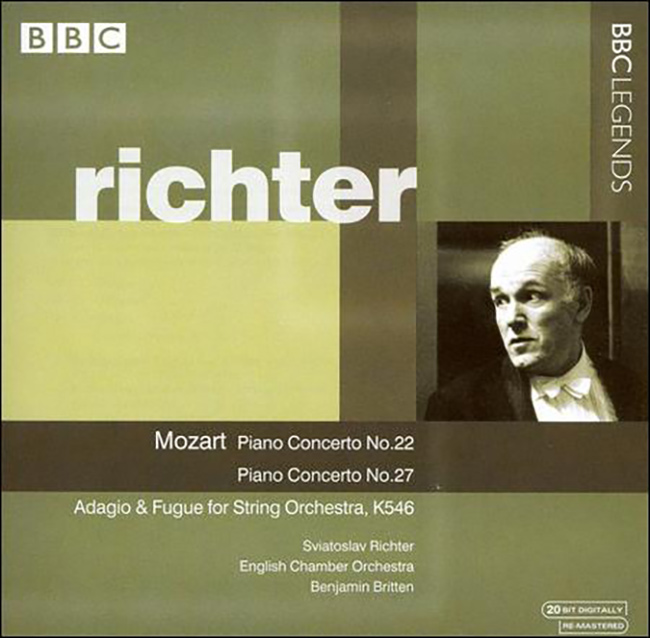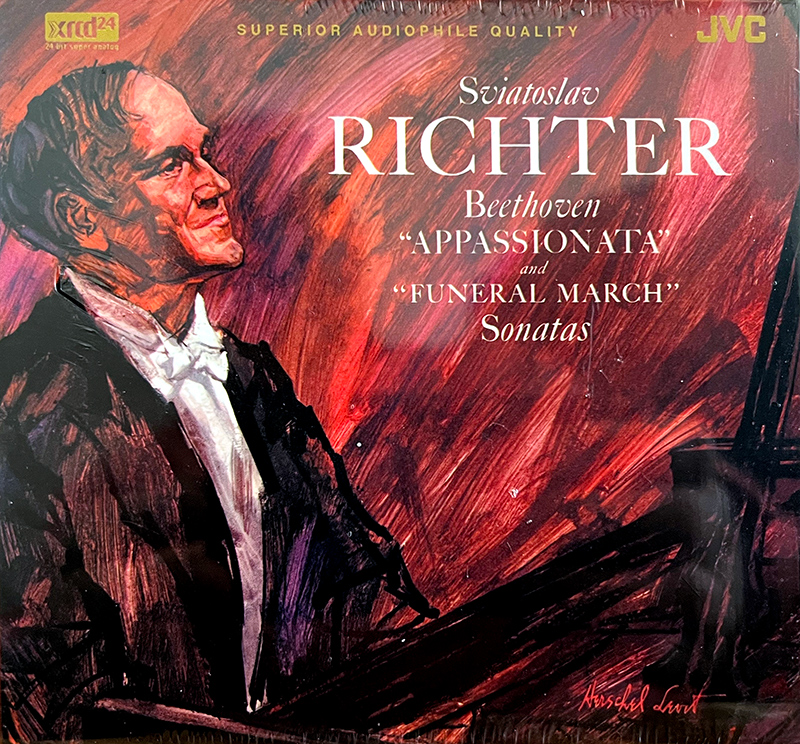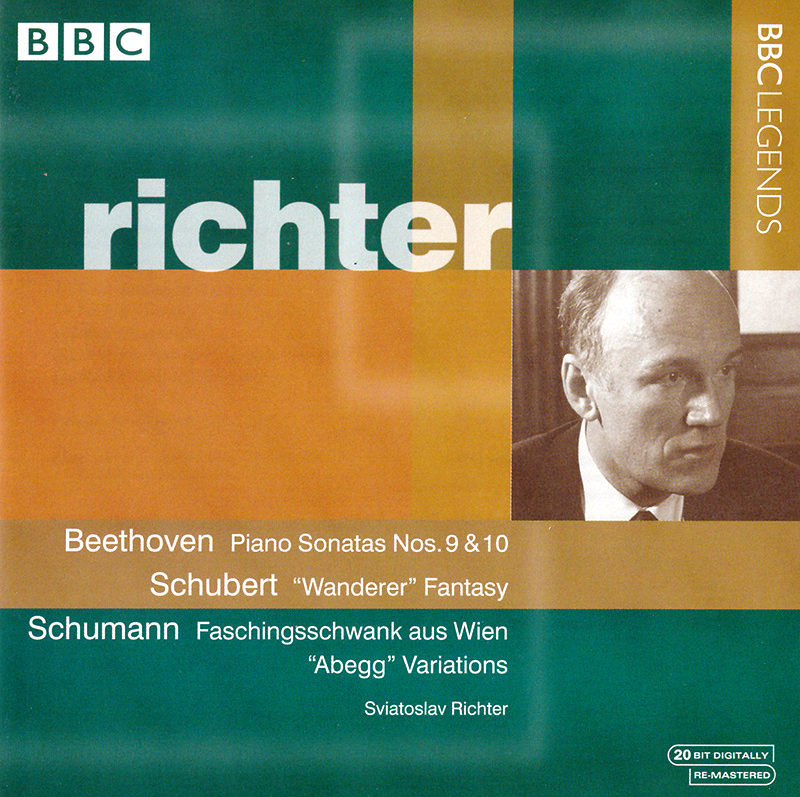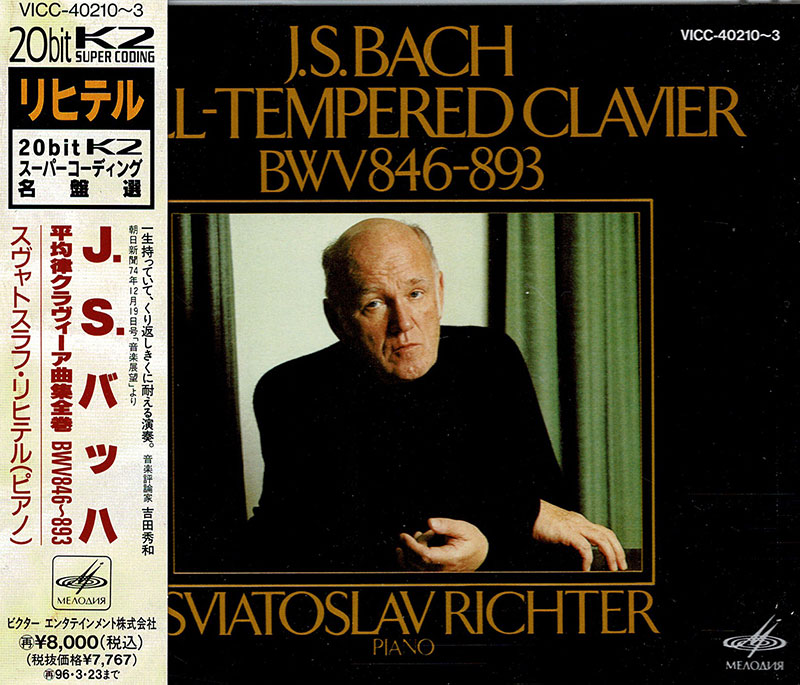Logowanie
Dlaczego wszystkjie inne nie brzmią tak jak te?
Chai Lang, Fan Tao, Broadcasting Chinese Orchestra
Illusive Butterfly
Butterly - motyl - to sekret i tajemnica muzyki chińskiej.
SpeakersCorner - OSTATNIE!!!!
RAVEL, DEBUSSY, Paul Paray, Detroit Symphony Orchestra
Prelude a l'Apres-midi d'un faune / Petite Suite / Valses nobles et sentimentales / Le Tombeau de Couperin
Samozapłon gwarantowany - Himalaje sztuki audiofilskiej
PROKOFIEV, Stanislaw Skrowaczewski, Minneapolis Symphony Orchestra
Romeo and Juliet
Stanisław Skrowaczewski,
✟ 22-02-2017
BARTOK, Antal Dorati, Philharmonia Hungarica
Dance Suite / Two Portraits / Two Excerpts From 'Mikrokosmos'
Samozapłon gwarantowany - Himalaje sztuki audiofilskiej
ENESCU, LISZT, Antal Dorati, The London Symphony Orchestra
Two Roumanian Rhapsodies / Hungarian Rhapsody Nos. 2 & 3
Samozapłon gwarantowany - Himalaje sztuki audiofilskiej
Winylowy niezbędnik
ClearAudio
Cartridge Alignment Gauge - uniwersalny przyrząd do ustawiania geometrii wkładki i ramienia
Jedyny na rynku, tak wszechstronny i właściwy do każdego typu gramofonu!
ClearAudio
Harmo-nicer - nie tylko mata gramofonowa
Najlepsze rozwiązania leżą tuż obok
IDEALNA MATA ANTYPOŚLIZGOWA I ANTYWIBRACYJNA.
Wzorcowe
Carmen Gomes
Celebrating the art and spirit of music - vol. 5 - Reference Songs
- CHCECIE TO WIERZCIE, CHCECIE - NIE WIERZCIE, ALE TO NIE JEST ZŁUDZENIE!!!
Petra Rosa, Eddie C.
Celebrating the art and spirit of music - vol. 3 - Pure
warm sophisticated voice...
SAMPLER - STS DIGITAL, Gregor Hamilton
Celebrating the art and spirit of music - vol. 2 - Love songs from Gregor Hamilton
...jak opanować serca bicie?...
SAMPLER - STS DIGITAL
Celebrating the art and spirit of music - vol. 1 - Leonardo Amuedo
Największy romans sopranu z głębokim basem... wiosennym
Lils Mackintosh
Celebrating the art and spirit of music - vol. 4 - A Tribute to Billie Holiday
Uczennica godna swej Mistrzyni
MOZART, Sviatoslav Richter, English Chamber Orchestra, Benjamin Britten
Piano Concertos Nos 22 & 27 / Adagio and Fugue in C minor K546
- Sviatoslav Richter - piano
- English Chamber Orchestra - orchestra
- Benjamin Britten - conductor
- MOZART
Some Richter treasure here. In the B flat his touch is crystalline, his phrasing shapely. The tempo seems deceptively relaxed during the opening tutti, but Richter makes the brilliant passages sparkle nevertheless. Over and above it all is a feeling of humanity. He could always be lofty but even in his heyday he could seem remote in the classical repertoire, as he increasingly did in his later years. Here is a performance by which to remember him as a wonderful Mozartian. For the record, there is a notable memory lapse near the beginning. The Larghetto is very slow but he holds the attention, while the finale is exuberant at a slightly faster pace than we often hear. Britten sometimes seems to want to characterize every moment to excess, but at least we know that with him on the rostrum that there will be none of the nondescript phrasing which critics sometimes describe as “unaffectedly musical” (aka “the conductor beats time and it goes how it goes”). The silence which greets the performance reminds us that in those high and far off times applause was still disapproved of in a church. As I said, some Richter treasure. Then there’s the E flat … Actually, in the first movement Richter’s playing is much as it is in the other work. Where I take issue is with Britten. Each great composer has his own particular relationship with the different keys. E flat was for Mozart the key of Die Zauberflöte. Even the E flat Symphony – no.39 – is, once past the introduction, more about warmth and humanity than about drama. Annie Fischer, with the Philharmonia under a particularly inspired young Wolfgang Sawallisch, takes us into the enchanted world of the Magic Flute. For Beethoven, E flat was the key of the Eroica and the Emperor Concerto. Perhaps it was for Britten, too, and I get the idea he wants to take this concerto by the scruff of its neck and turn it into a proto-Emperor Concerto. For a while the pair seem at odds, with Richter gently pursuing his own path willy-nilly. Then gradually he gets the bug. The reprise of the main theme of the Andante is unusually full-textured for Mozart, but there’s no need to make it sound like Rachmaninov. The theme of the finale is rapped out most unsympathetically, with Britten in full agreement. And then there are the cadenzas. For the B flat, Mozart had fortunately written his own. For the E flat, Britten has supplied the gap. Now, I’ve nothing against a contemporary composer providing a cadenza in his own style. I very much enjoyed the cadenzas which Kalevi Aho wrote for Sharon Bezaly to play in the flute concertos. They were totally contemporary yet somehow they provided their own comment on the works. In a strange way they fitted. Britten could have done something of the kind. Or he could have simply tried to keep as close to the Mozartian style as possible. Instead, I just don’t know what he thought he was doing. These sound like extracts from the sort of empty virtuosic Soviet competition pieces which were churned out by the likes of Kabalevsky downwards. Quite unspeakably awful! So this is more one for the Richter – and Britten – completists. For the record, since writing this I’ve read in the booklet that the cadenzas were intended as a musical portrait of Richter’s own personality. Most unflattering, I must say. To conclude, there is the Adagio and Fugue in C minor. I recently had Klemperer stomping through this and making it sound like Beethoven. Britten’s wide range of dynamic shading, effective in its way, makes it sound like a cousin to the Elgar Introduction and Allegro. Is there a performance somewhere that makes it sound like Mozart? The recordings are extremely good. Alternative Richter versions of these concertos are few. There’s a 1966 version of K595 with Barshai in Moscow, and versions of K.482 with Ormandy from 1970 – I don’t know how official a recording this is – and Muti from 1979. The latter is an EMI studio recording. These are hardly top recommendations, but I’ll be returning to the B flat quite often. Christopher Howell



























